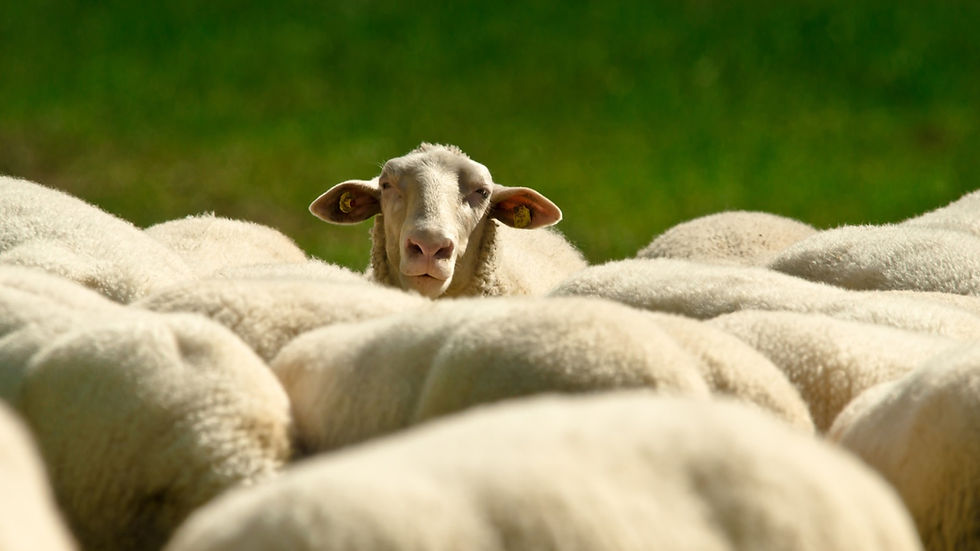Drought-affected farmers left high-and-dry waiting for loan scheme response
- Flow Australia
- Jul 15, 2025
- 4 min read
Australia’s peak farming bodies are demanding urgent action from the Federal Government after it remains yet to respond to two critical drought resilience actions.

The National Farmers’ Federation (NFF), alongside its members Australian Dairy Farmers, NSW Farmers, Primary Producers SA and Victorian Farmers’ Federation, is calling on Government to commit to the Regional Investment Corporation (RIC) and respond to the Independent Review of the Regional Investment Corporation Act 2018 (commonly referred to as the Act).
The RIC provides low interest loans to farm businesses to help farm businesses become more resilient and respond to drought conditions. In the seven years since the RIC was established, it’s helped almost 3,400 farm businesses, saving farmers over $354 million in interest payments.
The Independent Review was commissioned in November 2023, and the final report provided to Government over a year ago.
The report’s key recommendations include that
Concessional loans are an effective policy tool to support long-term viable farmers and farm related small businesses in financial need, particularly during drought, and
AND the Government retain the RIC as the delivery means for concessional finance.
While those in the farming sector recognises that time is needed to work through the recommendations, the NFF has continually urged the Minister for Agriculture to publicly support concessional lending and the RIC.
Not only does this align with the industry policy, which states clearly the sector’s support for concessional lending and the RIC, but also the Government’s renewed Drought Plan, released just last year.
NFF President David Jochinke said the NFF had formally written to the Minister twice seeking this commitment.
“The NFF appreciates that given the significant investment of public funds, along with policy and technical considerations, it is important the Government carefully considers its response to the RIC review.
“However, it’s been over a year since the review was handed to Government, it is imperative a response is provided. This is critical to support producers making decisions about their future risk management strategies.
“We are concerned producers have finished their FY26 budgeting without a clear signal on the Government’s commitment to concessional lending and the RIC as the tool to deliver it.”
At the election, the NFF outlined a series of immediate priorities for the incoming government.
The Government, to their credit, has responded to a number of these including visits to drought-affected regions by the Prime Minister and Agriculture Minister, increased funding for the Rural Financial Counselling Service, and the announcement of the 2025 National Drought Forum. But two key policy asks remain unanswered:
• An immediate extension of the RIC’s loan capacity beyond 30 June 2026.
• AND A formal response to the independent review of the RIC, delivered over a year ago, within the first 60 days of forming Government.
Mr Jochinke said that since the review was handed down in July 2024, there has been very little said from the government on the RIC’s future.
“It’s gathering dust while drought-affected regions struggle to grow crops in dust,” he said.
“Farmers are no strangers to risk. They plan for tough seasons, but when droughts stretch across seasons, they need tools to stay afloat, recover and prepare for the next drought. RIC loans aren’t handouts, they’re lifelines that get repaid in better times that provide farmers with financial breathing space.”
Australian Dairy Farmers President, Ben Bennett said that more than 40% of Australia’s dairy farmers are in drought - many of them battling the driest conditions on record. Meanwhile, dairy farmers in New South Wales are cleaning up after a 1-in-500 year flood.
“Farmers face crippling financial situations, with skyrocketing costs just to keep their cattle fed and watered, coinciding with poor milk prices for the coming season,” Mr Bennett said.
“The RIC needs to be a tool to help farmers with these disasters, and action is needed now.”
President of the Victorian Farmers Federation Brett Hosking said the regional communities thrive when the farm sector does. Therefore, alleviating the financial pressures currently on farms is integral to keeping local sporting clubs and businesses running.
“We’ve been vocal in saying that the RIC could be playing a greater role in supporting farmers, but to achieve that we first need certainty about this program’s future,” Mr Hosking said.
Primary Producers SA Independent Chair, Prof Simon Maddocks said
“South Australia has experienced one of the driest periods on record, with many regions now experiencing their third consecutive year of drought. The scale and persistence of these conditions clearly call for timely and effective support from the Federal Government.
“We urge the extension of RIC’s loan capacity beyond 30 June 2026 and in PPSA’s view recommend making concessional loans more accessible by reducing interest rates to a truly ‘concessional’ level, expediting processing, and broadening eligible uses to include restocking, debt relief, and infrastructure repair.”
Finally NSW farmers president Xavier Martin said it is known that 94% of RIC customers are family owned and operated businesses.
“These family farms name machinery upgrades, succession planning, building climate resilience and sustainability as their top priorities,” he said.
“It’s clear the RIC’s impact reaches beyond strengthening family farms, it’s also about the long-term sustainability of regional communities and the industry.
“The government must stop dragging its feet and commit to the RIC.”



Comments